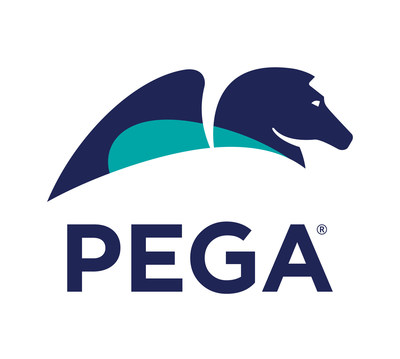Private Sector Expects to Lose Control of AI Governance Within Five Years, Says New Study
Rhea-AI Summary
A recent study by Pegasystems (NASDAQ: PEGA) reveals that a lack of accountability in the private sector will prompt governments to assume AI regulation responsibilities within five years. Conducted by iResearch, the survey of 1,350 C-level executives highlighted that 75% anticipate government oversight for AI governance, with 65% deeming current regulations inadequate. Additionally, 52% of respondents noted that the pandemic accelerated hyperautomation opportunities, but integration challenges remain significant.
Positive
- 52% of executives identified more opportunities for automation due to the pandemic.
- Expectations for hyperautomation impact in five years rose from 32% to 61%.
Negative
- 75% of executives expect government to take control of AI governance, which may stifle innovation.
News Market Reaction 1 Alert
On the day this news was published, PEGA gained 2.82%, reflecting a moderate positive market reaction.
Data tracked by StockTitan Argus on the day of publication.
CAMBRIDGE, Mass., Jan. 19, 2021 /PRNewswire/ -- A lack of accountability within the private sector will lead to governments taking over responsibility for AI regulation over the next five years, according to new research by Pegasystems Inc. (NASDAQ: PEGA), the software company that crushes business complexity. The global study, conducted by research firm iResearch, surveyed 1350 C-level executives across seven different industries in 12 countries to examine how growing technology trends such as artificial intelligence (AI) governance, hyperautomation, extended reality (XR), extended edge, and distributed cloud will evolve over the next five years.
The research identified a growing need for business leaders to take stronger accountability for the governance, integration, innovation, and adoption of emerging technologies so they can better enact change within their organizations. Key findings from the study included:
- The public sector is poised to fill the AI governance gap: Three quarters (
65% ) of respondents feel the current level of external AI governance isn't sufficient to manage its explosive growth. However, over a quarter (27% ) report they have no designated AI governance leader and only25% are managing a formal policy at the C-suite level. So who will fill the AI governance leadership void - the public or private sector? Though the vast majority (78% ) of respondents prefer full or equally shared responsibility for regulation, the numbers flip when asked about expectations for five years out, when75% expect the government will be largely or fully responsible for governance, which is clearly far from what respondents feel is the most appropriate balance. Whatever the future actually brings, the stakes are high: more than half (53% ) are concerned that external and/or government regulation will stifle their innovation.
- Successful integration will be key to the dawn of the age of hyperautomation: More than half (
52% ) of respondents say the pandemic has forced them to identify more opportunities to infuse automation into their businesses. This is particularly true in areas like workflow and case management – typical areas where companies focus their efforts to reduce costs and increase efficiencies in difficult times.
However, the study suggests that this shift to hyperautomation is more than just a short-term measure borne out of necessity; today, only
For hyperautomation to become a reality, concerns around integration must be addressed. Fifty-eight percent of respondents cite integration with existing legacy systems as the biggest automation challenge, while
- Extended Reality (XR) will add new dimensions to customer experiences… eventually: Though XR is one of the biggest emerging technology trends for consumers, just
35% of business leaders said XR is currently changing the way the industry is providing customer experience. However, the picture could look very different in five years, when30% of respondents say XR will become essential to customer engagement and over half (52% ) believe XR will eventually become a competitive differentiator.
- Distributed cloud and extended edge will maximize application effectiveness – provided the technology infrastructure matures around it: Seventy-three percent of respondents said remote and mobile work trends have made cloud deployments a high priority, while more than half (
51% ) said mobile and remote fuctionality will continue to be one of several drivers for extended edge technology adoption. But to achieve their full potential, the cloud and extended edge will need some help:41% of respondents say maturation of AI, automation, and machine learning are necessary to achieve deeper success. Today, only22% rated their distributed cloud technology as 'intelligent' or 'mature', while18% of respondents said the same of extended edge technology, demonstrating the extent of the challenge ahead.
Quotes & Commentary:
"If you want a real competitive advantage, you have to take an active, deliberate approach to adopting new digital technology -- now," said Don Schuerman, CTO & vice president, product strategy & market, Pegasystems. "Technology keeps advancing and is not going to slow down for organizations to catch up. Business leaders who are willing to embrace emerging technologies including AI, XR, extended edge, hyperautomation and distributed cloud will be the most likely to come out on top over the next five years."
Supporting Resources:
Download Pega's Future-proof 2025: Technology Trends Survey: https://www.pega.com/tech-trends-future-proof-2025
Notes to Editors
The survey canvassed C suite-level executives working for enterprises in financial services, retail, healthcare, life sciences, manufacturing, public sector, and telecommunications. Respondents work in customer service, information technology, and marketing and operations, and represent companies that operate in the Asian-Pacific (APAC), Europe, Middle East, and Africa (EMEA), and the Americas.
About Pega
Pega delivers innovative software that crushes business complexity so our clients can make better decisions and get work done. We help the world's leading brands solve their biggest business challenges: increasing customer lifetime value, streamlining customer service, and boosting operational efficiency. Pega technology is powered by real-time AI and intelligent automation, while our scalable architecture and low-code platform help enterprises adapt to rapid change and transform for tomorrow. For more information on Pegasystems (NASDAQ:PEGA), visit www.pega.com.
Press Contact:
Jon Brigden
Pegasystems
jon.brigden@pega.com
Twitter: @pega
All trademarks are the property of their respective owners.
![]() View original content to download multimedia:http://www.prnewswire.com/news-releases/private-sector-expects-to-lose-control-of-ai-governance-within-five-years-says-new-study-301209693.html
View original content to download multimedia:http://www.prnewswire.com/news-releases/private-sector-expects-to-lose-control-of-ai-governance-within-five-years-says-new-study-301209693.html
SOURCE Pegasystems Inc.









